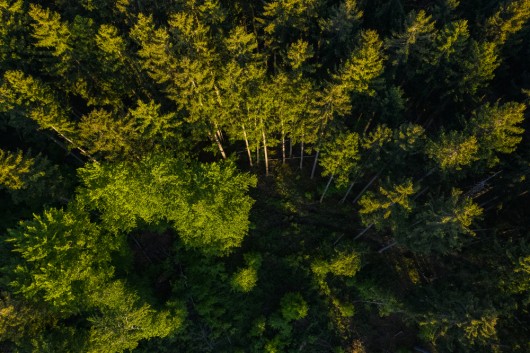Restoring the Earth’s lungs - How can forests support climate change mitigation?
08-02-2023

WATCH THE RECORDING HERE
The Nature Restoration Law, the first of its kind, is a proposal adopted by the European Commission in June 2022 which aims to restore damaged ecosystems and revive nature across Europe. The proposal is seen as instrumental in avoiding ecosystem collapse and preventing the worst impacts of climate change and biodiversity loss.
According to the European Commission, 80% of European habitats are in poor condition. The proposal aims to cover at least 20% of the EU's land and sea areas by 2030 with nature restoration measures, and eventually extend these to all ecosystems in need of restoration by 2050. To reach these targets, while accounting for national circumstances, the law would require Member States to develop National Restoration Plans, in close cooperation with scientists, interested stakeholders and the public.
Forests comprise 45% of European land. They act as the Earth’s lungs by absorbing enormous amounts of carbon from the atmosphere and are vital for combating climate change. According to the United Nations Environment Programme, eliminating emissions from deforestation and increasing carbon removals by promoting forest regrowth and landscape restoration could reduce global emissions by up to 30%.
Forests also provide non-carbon services such as providing water and food security and medicines and materials, regulating global rainfall patterns, and reducing the risk of disasters. They also host more than 50% of the world’s land-based species.
The Life Terra project seeks to plant 500 million trees in Europe. Tree planting is regarded as the most cost-effective solution to capturing carbon. It also supports nature restoration and prevents biodiversity loss.
Join this EURACTIV Virtual Conference to discuss the Commission’s proposal for the Nature Restoration Law in the context of forests. How can tree planting and forest restoration support climate change mitigation? What role can projects like Life Terra play in reaching the Commission's targets, and how can projects like this be replicated elsewhere?
Life Terra is co-financed by the European Commission through the LIFE Programme (LIFE19 CCM/NL/001200).
The content of this publication represents the views of the author only and is his/her sole responsibility. The Agency does not accept any responsibility for use that may be made of the information it contains.
WATCH THE RECORDING HERE
Supported by:
Location
Online
Panellists
Humberto Delgado Rosa, Director, Biodiversity, DG ENV, European Commission
Anna Deparnay-Grunenberg MEP, Substitute ENVI Committee, European Parliament
Stoyan Tchoukanov, President of the Beef Breeders Association of Bulgaria, Civil Society Organisations' Group (Group III) EESC
Kelsey Perlman, Forest and Climate Campaigner, FERN
Marta Múgica, Professional planting coordinator, Life Terra
Moderator
Niko Kurmayer
Journalist, EURACTIV
Schedule
14:30 – 14:35 Welcome
14:35 – 14:50 Panellist statements
14:50 – 15:40 Discussion and Q&A
15:40 – 15:45 Closing statements
Contact
Ana Alexandrescu
ana.alexandrescu@euractiv.com





